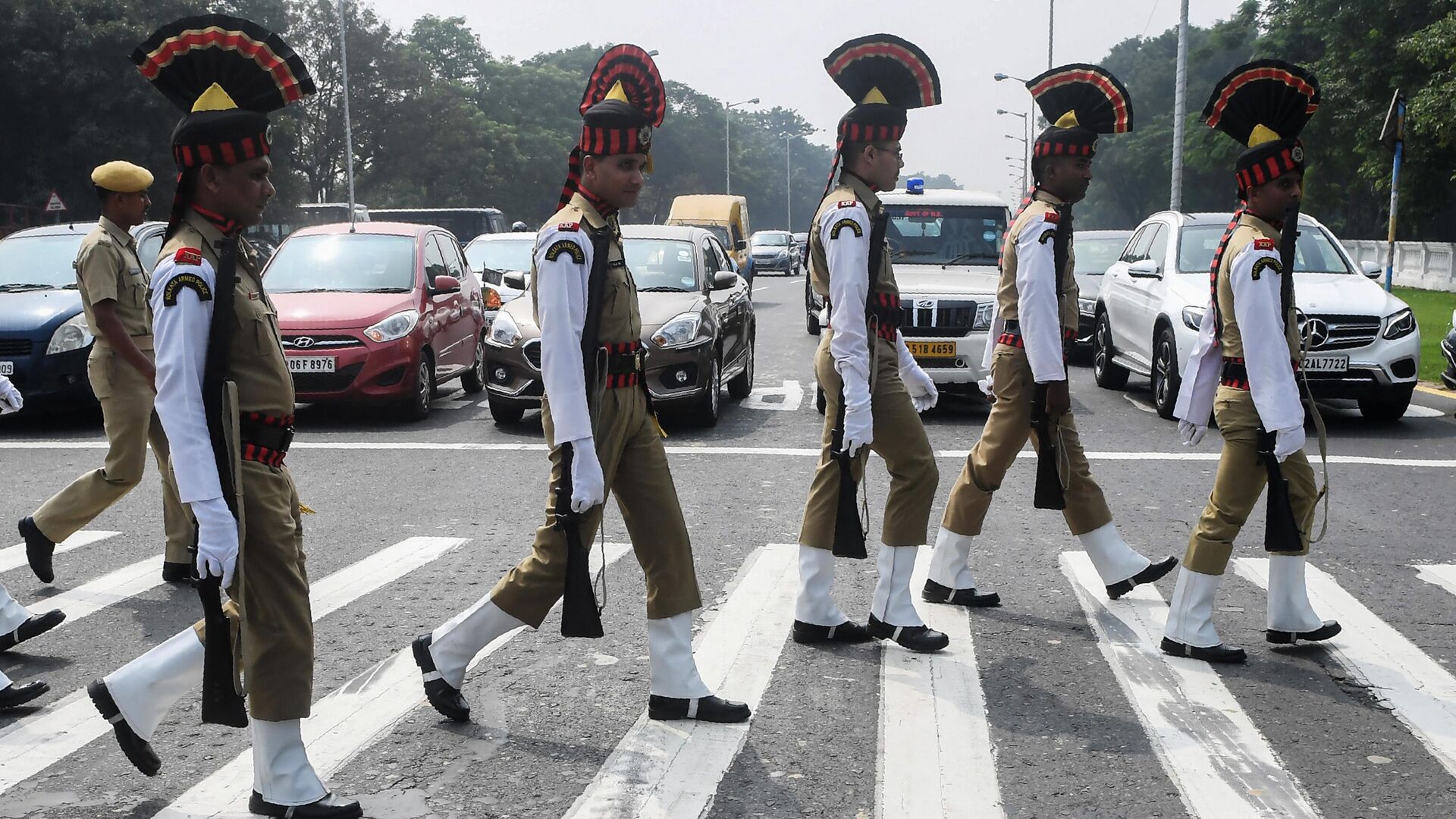https://sputniknews.in/20231226/why-ditching-colonial-laws-is-key-to-attaining-sovereignty-for-india-5960987.html
Why Ditching Colonial Laws is Key to Attaining Sovereignty for India
Why Ditching Colonial Laws is Key to Attaining Sovereignty for India
Sputnik India
India's parliament passed three amended criminal laws that will replace three colonial-era penal codes. Sputnik India spoke toPIL Man of India Ashwini Upadhyay about the impact of the colonial-era laws.
2023-12-26T13:56+0530
2023-12-26T13:56+0530
2023-12-26T14:07+0530
sputnik opinion
india
indian parliament
amit shah
british raj
colonial rule
colonial mindset
colonialism
https://cdn1.img.sputniknews.in/img/07e7/0c/1a/5967533_0:0:3072:1728_1920x0_80_0_0_fbcfdfab6e181c1b398a2ecf1d55caed.jpg
The British Crown ruled India for almost 200 years from 1757 to 1947. During their rule, the British introduced various laws under the Indian Penal Code (IPC), mainly to punish Indians for speaking out against the British government.India seems to have taken a step towards abolishing the British-era laws as President Droupadi Murmu on Monday gave assent to the three criminal justice bills – the Bharatiya Nyaya (Second) Sanhita, the Bharatiya Nagarik Suraksha (Second) Sanhita and the Bharatiya Sakshya (Second) Bill – passed in the Indian Parliament last week.The three new laws will replace the Indian Penal Code of 1860, the Code of Criminal Procedure Act of 1898, and the Indian Evidence Act of 1872, respectively.In an interview with Sputnik India, Supreme Court lawyer and PIL Man of India Ashwini Upadhyay shared his views on the impact of colonial-era laws on the country, the need to replace them and why they affect the weaker sections the most.How Colonial-Era Laws Were EnactedCommenting on the enactment of colonial-era laws, Upadhyay told Sputnik India that the British came to India with the aim of ruling the country and exploiting the natural resources available here.He went on to say that after the 1857 revolt, a Law Commission was formed under Macaulay, which produced the Indian Penal Code in 1860.He believes that India, despite gaining independence, is still influenced by colonial-era laws that threaten its sovereignty.Impact of Colonial-Era LawsSpeaking about the impact of colonial-era laws, the Supreme Court lawyer said they were imposed with the aim of suppressing the Indians."The main reason why the weaker sections suffer from colonial-era laws is that there is no accountability of the police. By accountability, I mean that if the police investigation is not done effectively, then there is no provision for punishment," Upadhyay said.He added that it was important to hold the police accountable if they did not investigate properly or file a complaint.India Ditches Colonial-Era LawsThe three bills passed by Parliament are not the first step India has taken to scrap colonial-era laws.In March this year, the Law Ministry had directed all government departments to identify all pre-independence laws and replace them with new ones.Later, on 11 August, the Jan Vishwas (Amendment of Provisions) Act was enacted, amending 42 laws and revising 183 provisions to minimise the number of cases in courts, facilitate business and keep people out of jail for minor offences.The other British-era laws to be amended under the Act are the Indian Post Office Act of 1898, the Agricultural Produce (Grading and Marking) Act of 1937, the Drugs and Cosmetics Act of 1940 and the Public Debt Act of 1944.In a step forward, Home Minister Amit Shah himself introduced three penal bills on 11 August, which were passed in Parliament last week.Talking about the need to do away with the British-era laws, Upadhyay said that India became independent in 1947 and attained sovereignty in 1950, but unfortunately the laws imposed by the British continued to be in force, so in real terms the country was still under their rule.He was of the view that all the colonial era laws should be abolished because our freedom fighters had laid down their lives for independence and sovereignty, but if the colonial era laws continue to exist, then we are not independent and sovereign.He also noted that the colonial era laws were government oriented but now the amended penal laws are people oriented which will help in speeding up justice. "However, I believe there should be one nation, one law.As of now, there are about 50 different laws and all of them have different sections of the IPC. So I think they should be integrated so that it becomes easier to file a police complaint and thus speed up the matter," Upadhyay said.The PIL man of India said that he believes that India will definitely be an example in terms of abandoning colonial practices and the process has just begun because the government has shown its intention to do so.
https://sputniknews.in/20230906/which-countries-changed-their-names-to-do-away-with-colonial-past-4067773.html
india
Sputnik India
feedback.hindi@sputniknews.com
+74956456601
MIA „Rossiya Segodnya“
2023
Rahul Trivedi
https://cdn1.img.sputniknews.in/img/07e6/0c/13/136500_0:0:628:627_100x100_80_0_0_72097ff894c7446b70d2efafcb719720.jpg
Rahul Trivedi
https://cdn1.img.sputniknews.in/img/07e6/0c/13/136500_0:0:628:627_100x100_80_0_0_72097ff894c7446b70d2efafcb719720.jpg
News
en_IN
Sputnik India
feedback.hindi@sputniknews.com
+74956456601
MIA „Rossiya Segodnya“
Sputnik India
feedback.hindi@sputniknews.com
+74956456601
MIA „Rossiya Segodnya“
Rahul Trivedi
https://cdn1.img.sputniknews.in/img/07e6/0c/13/136500_0:0:628:627_100x100_80_0_0_72097ff894c7446b70d2efafcb719720.jpg
ashwini upadhyay, colonial-era laws, bharatiya nyaya (second) sanhita, bharatiya nagarik suraksha (second) sanhita, bharatiya sakshya (second) bill, indian penal code, code of criminal procedure act, indian evidence act, thomas babington macaulay, 1857 revolt, police act, endowments act, land acquisition act, india to do away with colonial-era laws, supreme court of india, pil man of india
ashwini upadhyay, colonial-era laws, bharatiya nyaya (second) sanhita, bharatiya nagarik suraksha (second) sanhita, bharatiya sakshya (second) bill, indian penal code, code of criminal procedure act, indian evidence act, thomas babington macaulay, 1857 revolt, police act, endowments act, land acquisition act, india to do away with colonial-era laws, supreme court of india, pil man of india
Why Ditching Colonial Laws is Key to Attaining Sovereignty for India
13:56 26.12.2023 (Updated: 14:07 26.12.2023) Last week, India's parliament passed three amended criminal laws that will replace three colonial-era penal codes. Sputnik India spoke to a Supreme Court lawyer about the impact of the colonial-era laws and why it is important to get rid of them.
The British Crown ruled India for almost 200 years from 1757 to 1947. During their rule, the British introduced various laws under the Indian Penal Code (IPC), mainly to punish Indians for speaking out against the British government.
India seems to have taken a step towards abolishing the British-era laws as President Droupadi Murmu on Monday gave assent to the three criminal justice bills – the Bharatiya Nyaya (Second) Sanhita, the Bharatiya Nagarik Suraksha (Second) Sanhita and the Bharatiya Sakshya (Second) Bill – passed in the Indian Parliament last week.
The three new laws will replace the Indian Penal Code of 1860, the Code of Criminal Procedure Act of 1898, and the Indian Evidence Act of 1872, respectively.
In an interview with Sputnik India, Supreme Court lawyer and PIL Man of India Ashwini Upadhyay shared his views on the impact of colonial-era laws on the country, the need to replace them and why they affect the weaker sections the most.
How Colonial-Era Laws Were Enacted
Commenting on the enactment of colonial-era laws, Upadhyay told Sputnik India that the British came to India with the aim of ruling the country and exploiting the natural resources available here.
"They first tried to change the education system and Thomas Babington Macaulay was put in charge of that, but after the 1857 rebellion he was given the task of making laws so that there would be no obstacle to establishing their rule over the country," the lawyer said.
He went on to say that after the 1857 revolt, a Law Commission was formed under Macaulay, which produced the Indian Penal Code in 1860.
"India is still following the Indian Penal Code of 1860 and similarly there are various other laws like the Police Act of 1861, the Endowments Act of 1863, the Land Acquisition Act of 1894 and many others that are still in force," Upadhyay said.
He believes that India, despite gaining independence, is still influenced by colonial-era laws that threaten its sovereignty.
Impact of Colonial-Era Laws
Speaking about the impact of colonial-era laws, the Supreme Court lawyer said they were imposed with the aim of suppressing the Indians.
"No Briton was punished during the British rule. It was always our freedom fighters who were punished. They had made the government-oriented laws that favoured them," he said, adding that it was only because of the colonial-era laws that the most vulnerable class was still suffering.
"The main reason why the weaker sections suffer from colonial-era laws is that there is no accountability of the police. By accountability, I mean that if the police investigation is not done effectively, then there is no provision for punishment," Upadhyay said.
He added that it was important to hold the police accountable if they did not investigate properly or file a complaint.
India Ditches Colonial-Era Laws
The three bills passed by Parliament are not the first step India has taken to scrap colonial-era laws.
In March this year, the Law Ministry had directed all government departments to identify all pre-independence laws and replace them with new ones.
Later, on 11 August, the Jan Vishwas (Amendment of Provisions) Act was enacted, amending 42 laws and revising 183 provisions to minimise the number of cases in courts, facilitate business and keep people out of jail for minor offences.
The other British-era laws to be amended under the Act are the Indian Post Office Act of 1898, the Agricultural Produce (Grading and Marking) Act of 1937, the Drugs and Cosmetics Act of 1940 and the Public Debt Act of 1944.
In a step forward, Home Minister Amit Shah himself introduced three penal bills on 11 August, which were passed in Parliament last week.
Talking about the need to do away with the British-era laws, Upadhyay said that India became independent in 1947 and attained sovereignty in 1950, but unfortunately the laws imposed by the British continued to be in force, so in real terms the country was still under their rule.
"If you look at the preamble of the Indian Constitution and it declares India to be a sovereign socialist secular democratic republic committed to justice, equality and liberty for the people. The first word is sovereign which means self-governance and it says that we are governed by the rule of law but the laws in place are from the colonial era which means that we are still under their rules," he explained.
He was of the view that all the colonial era laws should be abolished because our freedom fighters had laid down their lives for independence and sovereignty, but if the colonial era laws continue to exist, then we are not independent and sovereign.
He also noted that the colonial era laws were government oriented but now the amended penal laws are people oriented which will help in speeding up justice. "However, I believe there should be one nation, one law.
As of now, there are about 50 different laws and all of them have different sections of the IPC. So I think they should be integrated so that it becomes easier to file a police complaint and thus speed up the matter," Upadhyay said.
The PIL man of India said that he believes that India will definitely be an example in terms of
abandoning colonial practices and the process has just begun because the government has shown its intention to do so.



